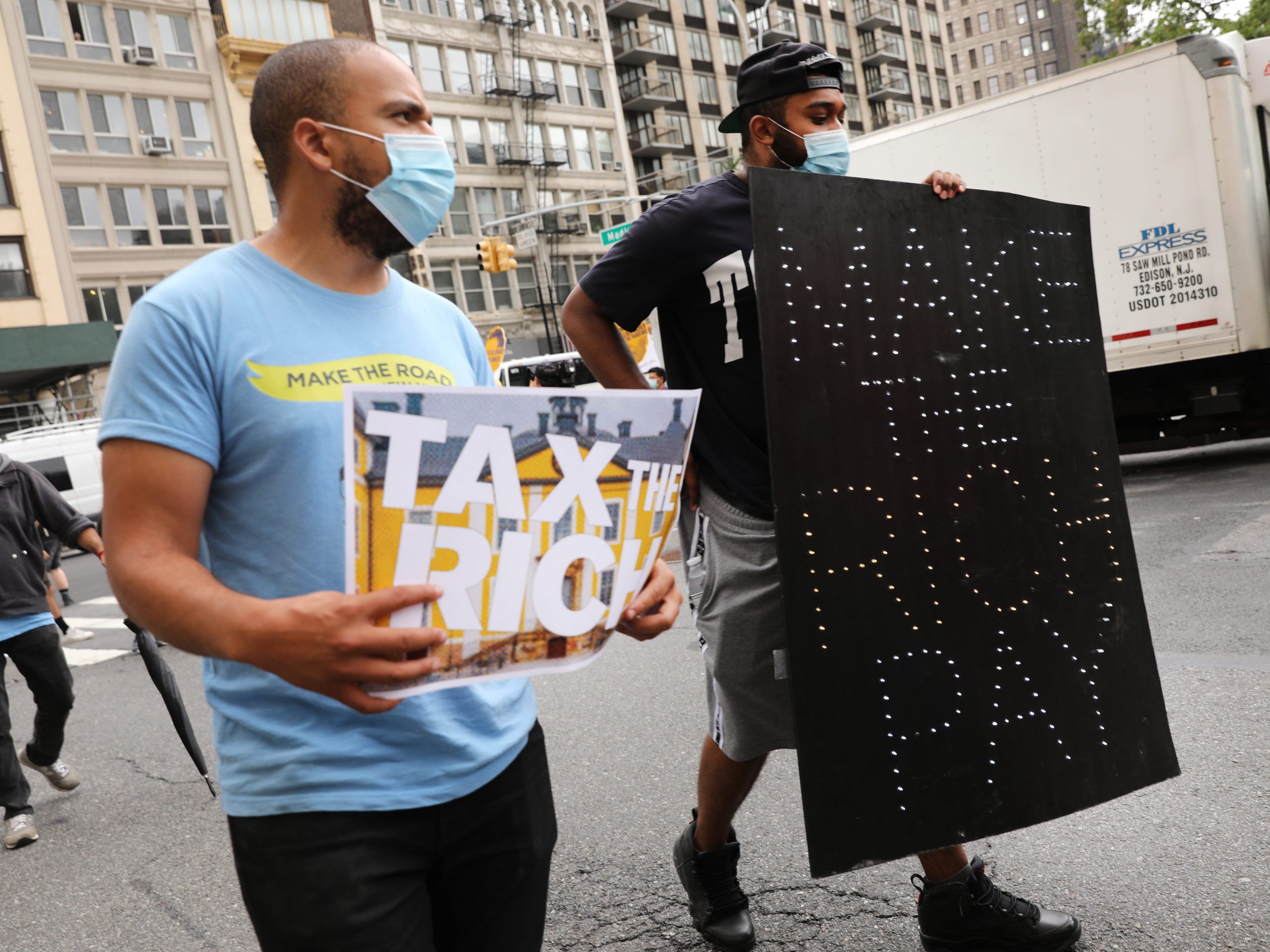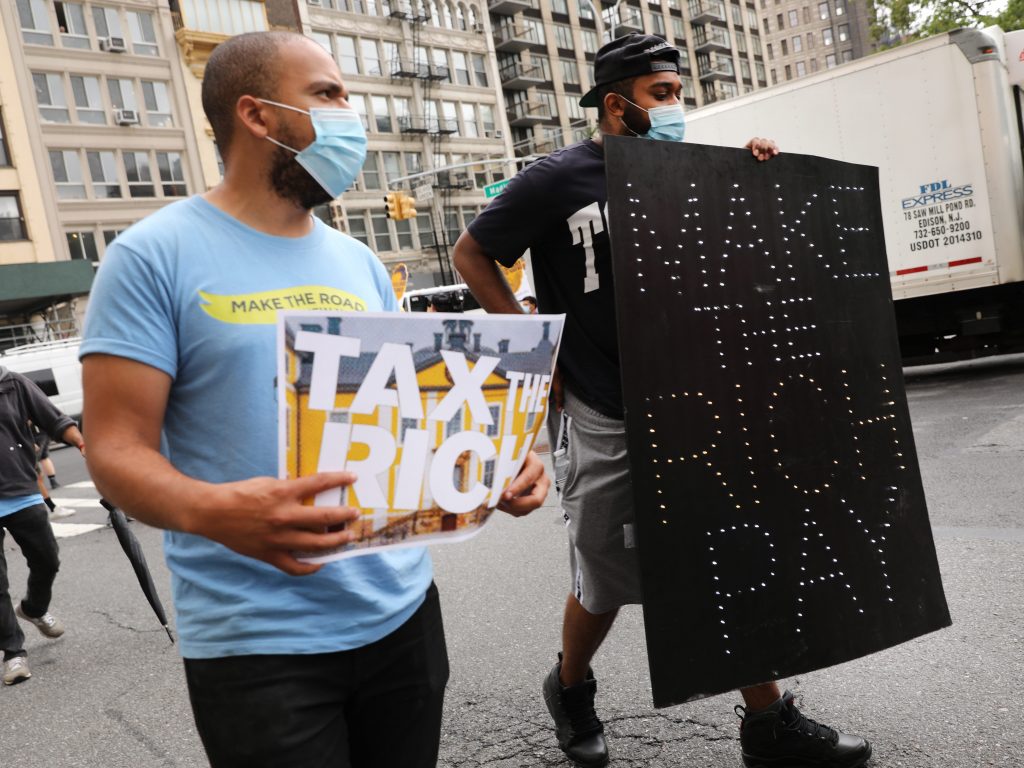
- An analysis from the Tax Policy Center finds the richest Americans would see big hikes under the Democrats' tax plan.
- The top 0.1% of Americans would pay over $1 million more in federal taxes under the new provisions.
- Low and middle income parents would benefit the most from the new plan.
- See more stories on Insider's business page.
House Democrats have floated a suite of tax hikes and changes to pay for the $3.5 trillion reconciliation bill and, by design, America's highest earners will pony up the most.
A new analysis from the Tax Policy Center finds that the top 1% and top 0.1% would see particularly hefty hikes under the latest proposal, while lower-earning parents would benefit from tax cuts.
Democrats are using a few methods to target high earners. They propose increasing the income tax rate to 39.6% for individuals who earn over $400,000. In addition, the plan hikes up the rate on capital gains – profits from selling assets like stocks and bonds – to 25%. Many of the wealthiest Americans derive a sizeable chunk of their incomes from assets, rather than straightforward wages, and the capital gains tax targets the profits from selling off those assets. The proposal would also bring the corporate tax rate up to 26.5% for companies that bring in over $5 million.
All told, according to the Tax Policy Center, the top 1% would see their taxes go up by about $160,000. For the top .01% – who earn at least $4 million, per the Tax Policy Center – taxes would increase by $1.1 million. Both rates would come in a bit lower if the corporate tax increase is filtered out.
On the other hand, the analysis finds that low- and middle-income parents stand to see significant cuts under the new measures. That's due to an extension of the Child Tax Credits, which provides direct payments to parents every month. According to the Tax Policy Center, the lowest earning parents would see taxes slashed by about $3,700, which could come in the form of a direct payment. For middle-income families that cut would come to around $3,000.
The big benefits to lower-income Americans that the Tax Policy Center found are consistent with an analysis from the congressional Joint Committee on Taxation. That analysis found a drop in tax rates for all Americans making under $200,000, and for Americans making less than $50,000, the current proposals would lower taxes more than the 2017 Republican-backed Tax Cuts and Jobs Act:
The Biden administration has repeatedly emphasized more equitable taxes
The tax gap - and who is and isn't paying taxes - has emerged as one flashpoint for inequality. Earlier this month, Treasury Department researchers found that the top 1% of earners evade $163 billion in taxes annually. President Joe Biden has continually said he's "sick and tired" of the inequality in the tax system.
"Millionaires and billionaires are paying a lower tax rate than teachers and firefighters. We're going to restore fairness to the tax code, give working people a much-needed tax cut, and make the investments that will grow our economy for years to come," Biden wrote in one tweet.
Indeed, White House economists released an analysis earlier this month showing that America's highest earners pay just above 8% in income taxes. And on Wednesday, Heather Boushey, a member of the president's Council of Economic Advisers, released a New York Times opinion essay saying that Congress is facing a choice between investing in the middle class or to keep "giving billions in tax handouts to the wealthiest Americans and multinational corporations."
But the bill containing those potential tax increases is currently facing its own uphill battle. Currently, House Speaker Nancy Pelosi is working to get the bipartisan infrastructure bill passed this week. Progressives have said they'd only vote on that bill if it comes in conjunction with the larger reconciliation package that contains social spending and tax hikes. Now, as moderate Democrats emerge as roadblocks to that larger package, there's just a bipartisan vote set for this week - and progressives are warning they'll torpedo the standalone bill.
